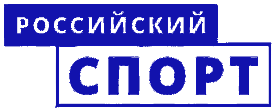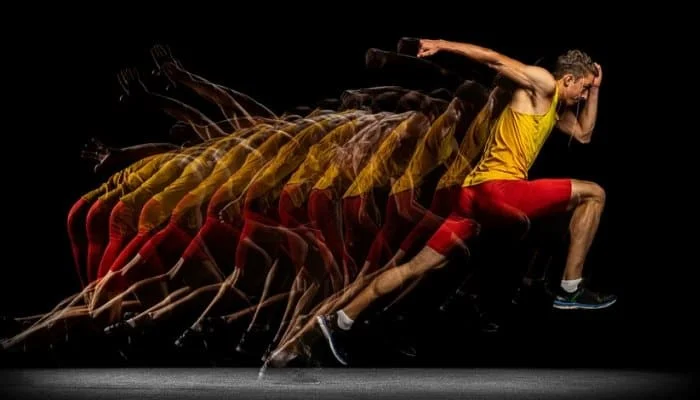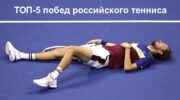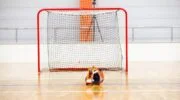In the article “Human reaction speed” we will talk about where exactly victories begin: natural talent, its development in training and sharpened intuition.
What does a person’s reaction depend on? Is it a natural talent or the result of hard training? Is there a limit to the reaction, a boundary that cannot be overcome?
Long years of training prepare an athlete for the decisive moment, the very second when her majesty victory chooses a new favorite. Every athlete dreams of this triumph.
In our article we will talk about where exactly the victories begin. And it all starts with the reaction of a person. A modern person reacts to hundreds of external factors every minute: in the car, on the street, in public transportation and even in our own apartment we make decisions depending on what is happening now.

Most people have a reaction time of 230-270 ms. Scores of 270 ms or more indicate a slow reaction time. Fighter pilots and Olympic champions show results of 150-170 ms.
So what does human reaction speed depend on and how to achieve its maximum value? Athletes are constantly working on themselves, they develop speed, strength, reaction. They are more coordinated, they have a lot of skills to be successful.
The circumstances of a sports fight cannot be predicted, you need to be ready for unexpected turns in order to react to them in time and take control of the further course of events.
As scientists’ research shows, the state of the central nervous system and the speed of impulses passing through it are determined by heredity by almost 70%. The structure of muscles responsible for transforming the received signals into movement is also largely predetermined by birth. But is this enough for sports victories?
Athletics. Sprint. The shortest distance of 100 meters. The world record is 9.58 seconds (Usain Bolt, 2009), if you lose a moment, you can’t catch up. Naturally, in this sport a lot depends on the start, on the speed of human reaction.
Associate Professor of SCSOLIFC, Candidate of Pedagogical Sciences Oktay Mirzoev:
“We have specifically conducted studies that show that the contribution of a person’s starting response to athletic performance in the 100-meter dash is only 2-3%”
And how can these 2-3%, lost or gained, affect the final result? The scientific team of the Russian athletics team conducted a set of studies at major international competitions.
It turned out that a delayed reaction at the start often turns into a defeat. Irina Privalova’s final race at the 1995 World Championships is an example. She won the bronze medal with a magnificent time of 10.94 seconds, losing only 2 hundredths to her nearest rival. The scientists’ measurements showed that the Russian lost 8 hundredths on the exit from the pads, which is what deprived her of her second place at the World Championships.
Interesting fact: scientists claim that the minimum time for which an athlete can run 100 meters is 9.48 seconds. Thus, Usain Bolt’s record of 9.58 seconds in 2009 is at the limit of human capabilities.
So how does a sprinter train his reaction speed? It turns out that a sprinter must react to any signals: the starter’s shot, various commands, clapping, etc. The central nervous system must be adapted to any bursts. It reacts best to a tactile sensation, then sound and much worse to a visual signal.
Reaction is not just a given in the genes. The same organism responds differently to the signals it receives. This is why sprinters in training practice not how fast they react to the sound of the starting gun, but how fast they move immediately after the shot.
Associate Professor of SCSOLIFC, Candidate of Pedagogical Sciences Oktay Mirzoev:
“There are special trainings that are dedicated to the human reaction to any signal. It is only through this that the best, good or adequate starting reaction to the starter is developed”
There are some sports in which a person’s reaction speed is the most important guarantee of victory. For example, bench shooting, in which the shooter’s reaction speed determines the probability of hitting the target, similarly in cyber sports, when you don’t know where and from which side a crowd of monsters will fall on you.
Standing shooting is a reaction to the visual image of a flying target. The central nervous system receives the corresponding signal from the peripheral vision, which is responsible for moving objects. In high-class athletes, it is so trained that they sometimes manage to see things that are inaccessible to the average person’s eye.
Lyudmila Pshenichnikova, Master of Sport in Standing shooting:
“I can tell you that there are shots fired, and I’ve had a few where I’ve even seen buckshot from the cartridge. It’s hard to explain. I think it happens to all shooters”
In big sports, it is not the speed of a person’s reaction in general that is important, but its speed in specific circumstances and no computer assistants are able to recreate a real sports situation. For example, all bench shooting is conducted with anticipations.
Preemptions are not only specific to shooting. Reaction is determined by the rate of metabolism and itself can be trained only up to a certain level, within the limits and peculiarities of each organism. You have reached the limit of natural capabilities, and then what?
This is when anticipation or intuition comes into play, i.e. an experienced athlete anticipates the opponent’s movement, which gives him additional fractions of a second to choose a response move. In many sports, where there are very fast movements, athletes are mainly oriented not on the movement of the ball, but on the movement of the opponent.
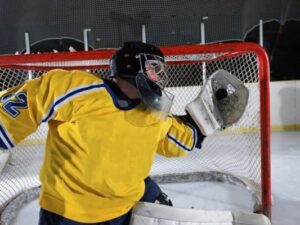
Modern hockey is a fast-paced game, and it is especially difficult for goalkeepers. With every attack, one of the opponents tries to close the moment of the shot from him in order to reduce the reaction time, and in hockey it is sometimes not enough.
Hockey goalkeeper training is not only about practicing the speed of reaction to a shot, but also about developing the ability to anticipate game situations without errors. Unlike tennis, on the hockey court have to simultaneously evaluate the actions of not one, but several opponents.
So, let’s summarize. We have described above different aspects that influence the reaction speed of a person: it is a natural talent, its development in training and heightened intuition. It turns out that physical features of the organism do not determine everything. In the decisive minutes of a sports match, psychological stability comes to the fore.
As a rule, soccer goalkeepers, when taking a penalty kick, start moving a moment before the field player kicks the ball. By the behavior of the kicker they try to guess the force and impact of the ball’s flight, and the kicker tries to deceive the goalkeeper with false movements, i.e. there is a duel of looks.
Modern sports all consists of this kind of penalties, micro duels, which change every second each other. The outcome of a duel between rivals of equal class determines not only muscle fitness, but also character. I.e. not just an instant reaction to a signal, but also confidence that he will be able to perform the practiced movement in any conditions.
